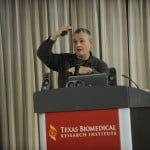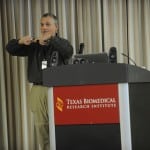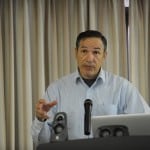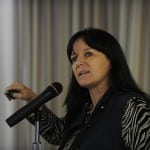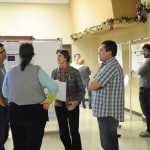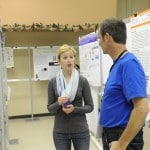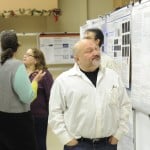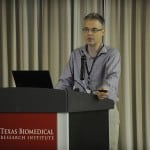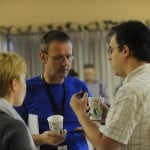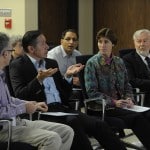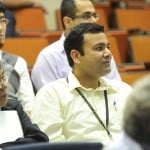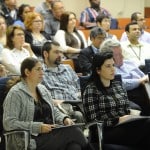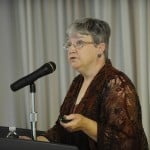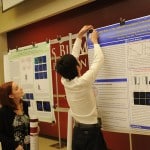Texas Biomed closed out 2014 by hosting its first Research Day. Staff scientists from across the institution presented their work to colleagues and postdoctoral and graduate researchers presented posters at the first annual Research Day. In an effort to foster collaboration and information sharing, the Institute hosted a day-long meeting with 17 presentations from faculty and about two dozen posters were shown.
Texas Biomed is hoping to expand Research Day to include other regional institutions as the organization aims to advance a collaborative approach to biomedicine and biomedical research that will enhance lives through discovery.
Scientists in the Department of Genetics, as well as Department of Virology and Immunology and the Southwest National Primate Research Center presented on the following topics:
- Malaria Genomis in a Public Health Crisis
- Marmoset Model of Pediatric Obesity
- Directing Pluripotent Stem Cells Toward Specific Fates
- Advanced development of countermeasures to viral hemorrhagic fever
- Genetic research to address health disparities in underserved population groups
- Genetics and diet in cardiometaboli health
- Impact of maternal nutrition on offspring development and health
- Neural stem cell therapy for neurological disorders
- Cell biology of Ebolavirus entry
- Nonhuman primate model for AIDS: Lessons learned toward an effective vaccine
- Inhibition of SIV replication with siRNAs
- Host genetic regulation of Anti-EBV (EBNA-1) Antibody levels
- Redefining bone strength
- Llama singl domain antibodies as novel disruptive countermeasures against Marbug and Ebola
- Viral-host interactions in Hepatitis and liver cancer
- HyCCAPP: Hybridization capture of chromatin-associated proteins for proteomics
- Defense-in-depth agaist mucosal HIV invasion





